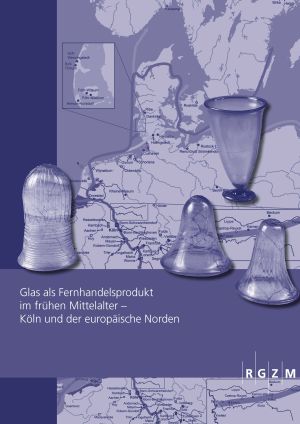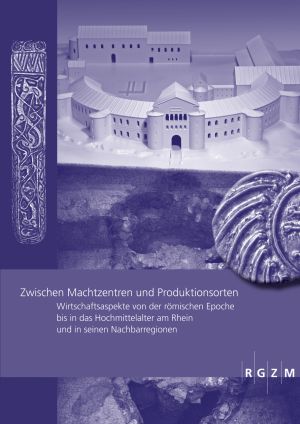Kronz, Andreas
Glas als Fernhandelsprodukt im frühen Mittelalter – Köln und der europäische Norden: Zwei Workshops im Rahmen des DFG-Schwerpunktprogramms »Häfen von der Römischen Kaiserzeit bis zum Mittelalter«, ausgerichtet vom Römisch-Germanischen Museum zu Köln, 8.-10. November 2016 und dem Sydvestjyske Museer in Ribe / Dänemark, 20.-22. März 2018
The Six-Year Priority Programme (SPP) 1630 „Ports from the Roman Imperial Period to the Middle Ages“, funded by the German Research Foundation (DFG), led to an interdisciplinary and networked cooperation between several project groups – Rhine, North Sea, Baltic Sea and inland ports – with research on early medieval glass finds at ports. External institutions and persons dedicated to research on the production and distribution of glass in the early Middle Ages were also included in the exchange taking place within the priority programme. The cooperation linked different regions: the Frankish Empire and the territories of the Frisians, Saxons, Vikings and Slavs.
Without the SPP, such networked and far-reaching research would not have been possible. The sub-project „The Early Medieval Port of Cologne – Production Site and Export Port for Glass“ with the glass workshops of the Merovingian and Carolingian periods recorded there, which were archaeologically and scientifically evaluated, forms the starting point for research on the early medieval economic history of glass in this volume.
The twelve contributions are based on lectures given at two conferences organised by the Römisch-Germanisches Museum of the City of Cologne (9-10 November 2016) and the Sydvestjyske Museum in Ribe, Denmark (20-22 March 2018).
Zwischen Machtzentren und Produktionsorten: Wirtschaftsaspekte von der römischen Epoche bis in das Hochmittelalter am Rhein und in seinen Nachbarregionen
On 12 November 2018, a cooperation agreement was signed in Ingelheim am Rhein between the Kaiserpfalz Research Centre based there and the Roman-Germanic Central Museum, Leibniz Research Institute for Archaeology. With this agreement, the close ties that have existed since the middle of the 19th century between the scientists in Mainz and the researchers of the Imperial Palace in Ingelheim were confirmed in writing. The future cooperation will focus particularly on European economic aspects and topics of supra-regional materials research. The first fruits of this cooperation were presented at interdisciplinary conferences on 12 and 13 November 2018 in Ingelheim and on 28 and 29 November 2019 in Mayen. These events also served as an intensive exchange with scientists from Germany and abroad. The results of both conferences are brought together in this conference volume. In 25 papers, the fundamentals of trade in the Rhineland and its neighbouring regions as well as the processes of the exchange of goods between centres of power, rural regions and production sites in the period from the Roman era to the High Middle Ages are examined from very different perspectives. Both for the large-scale development tendencies and the relationships between different economic regions as well as for the production sites and the marketing routes, the contributions offer trend-setting explanations, fundamental presentations and exceptional descriptions. They form the basis for future research in parts of Europe adjacent to the Rhineland, which is planned within the framework of the cooperation and will be reflected in further conferences.








